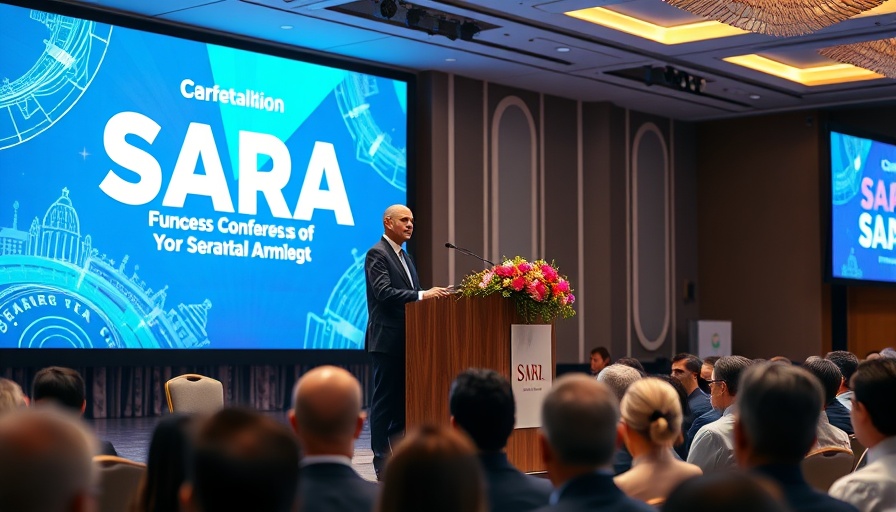
Understanding the Rising DDoS Threat Landscape in Southern Africa
Recent insights from the NETSCOUT Threat Intelligence Report highlight the escalating risks of distributed denial-of-service (DDoS) attacks across southern Africa, focusing particularly on nations like South Africa, Mauritius, and Angola. The second half of 2024 revealed a plethora of complex attack vectors, raising alarms amongst cybersecurity professionals. As businesses in the region increasingly adopt technologies such as cloud computing and the Internet of Things (IoT), they inadvertently expose themselves to enhanced cybersecurity threats.
Why are Businesses Being Targeted?
The primary reason behind the surge in DDoS attacks lies in the growing dependency on digital infrastructure. With the rise of 5G connectivity and digital transformation initiatives, companies across southern Africa are embracing more sophisticated technologies than ever before. This shift, however, invites various risks, including cyber attacks that can cripple operations and threaten data privacy. In South Africa alone, which recorded the highest DDoS incidents in the region, businesses are forced to reconsider their cybersecurity strategies to fend off these threats.
The Evolving Nature of DDoS Attacks
DDoS attacks are becoming increasingly sophisticated, utilizing machine learning and automation techniques to launch more effective and persistent strikes. Weaknesses in IoT devices and reliance on software applications have created vulnerabilities that malicious actors can exploit. For decision-makers, understanding the potential impact of these threats on operational continuity and reputation is crucial. Think about it: how vulnerable is your organization? Moreover, employing technologies such as artificial intelligence to enhance threat detection can provide a viable countermeasure.
Case Studies: Regional Implications
Consider the example of Mauritius, which has also seen a rise in cyber threats, albeit at a lower volume than South Africa. Organizations in Mauritius must remain vigilant, as these attacks can spill over from neighboring countries. Similarly, countries like Zambia and Zimbabwe need to be proactive in enhancing their cybersecurity measures to safeguard against the backdrop of evolving threats.
CIOs and C-Level Executives: What You Need to Know
As business leaders, insights from the NETSCOUT report emphasize that cybersecurity should not be an afterthought. Instead, it should be embedded in the organizational culture. Engaging in comprehensive cybersecurity training, adopting enterprise-level risk management frameworks, and instigating regular security assessments can substantially mitigate risks. Furthermore, companies should explore digital tools and platforms that promote active network security and incident response capabilities, considering the use of advanced technologies like blockchain to enhance data integrity.
The Role of Government and Policy
Governments can play a critical role in creating a conducive cybersecurity environment. Clear tech policies encourage investments in digital infrastructure while setting standards for cybersecurity protocols. Investing in tech talent and nurturing innovative startups within the cybersecurity space can bolster the region's resilience. With emerging tech hubs focusing on fintech, healthtech, and smart cities utilizing digital payment solutions, there is an urgent need for comprehensive cybersecurity strategies to accompany this growth.
What Are the Next Steps for Southern African Businesses?
The findings from NETSCOUT present a clear call to action for business leaders across southern Africa. It's imperative to invest in both technology and human resources to strengthen defenses against cyber threats. Exploring collaborative tools could lead to not just improved security measures but also enhanced digital transformation endeavors. Those who embrace innovation now will pave the way for more secure business landscapes in the future.
As we conclude, it’s evident that DDoS threats will continue to evolve, necessitating a move from reactive to proactive measures. How prepared is your organization to face this rapidly changing landscape? This awareness can significantly alter the trajectory of a business’s future.
 Add Row
Add Row  Add
Add 




Write A Comment